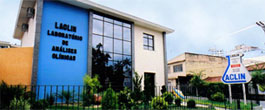Home > Tests
TESTS
Physical activities before the exams can change some laboratory tests, especially chemical evidence. That's why no vigorous physical activity should be performed within 12 hours before the test.
Avoid smokingSmoking can interfere with some biological measurements such as catecholamines, cortisol and others. So avoid smoking before the collection of material.
Report on drug useThe drugs can cause interference in laboratory tests. But DO NOT stop taking medications prescribed by your doctor without his authorization. Just tell the clerk the name of the medicine you are using.
RelaxAnxiety and stress lead to disturbance in acid-base balance by increasing serum lactate, among other substances. Stay calm before and during the collection of his material, it is a simple procedure and will be performed by trained and experienced.
Do not drink alcoholDo not make drinking alcohol within 72 hours prior to collecting the material, because it affects the liver enzymes, coagulation tests, and other lipids.
Make fast properlyFasting recommended is 12 to 14 hours before collection. Prolonged fasting beyond this time can affect the results. Remember that in some cases fasting is NOT required. When in doubt, please contact us.
Laboratory tests for the most part, and possess a biological change daily, subject to interference such as: methodology, physical activity, stress, diet, medication, emotional and environmental factors. No examination of isolated should be used for diagnosis. To establish a diagnosis is needed a careful correlation with clinical examinations complementais. Only your physician can do it properly.
Single Urine Sample Collection (EAS and urine culture)
• Making sanitation of the genitalia with soap and water.
• In women, always wash and dry from front to back;
• In men, washing retracting the foreskin for adequate cleaning of the urethral meatus;
• After care disregard the first jet of urine and collect the remainder in a sterile vial supplied by the laboratory;
• It is not necessary to fill the glass to the brim;
• Seal the jar and forward immediately to the laboratory
Urine Collection 12 Hour:
• When you awaken in the morning to empty the bladder completely disregarding this urine.
• From there, carefully scoop all the voids of the next 12 hours and not just a part. If you happen to forget to collect some urination, stop collecting and start it again the next day.
IMPORTANT:
• It is essential that is delivered to the laboratory the entire sample of urine for 12 hours.
• Any error in this collection will result in error in the results.
• Avoid making the collection days in which there is a change in their habits (diet, exercise etc ...)
• Collect samples in clean and dry container, preferably in bottles of mineral water in order to avoid contamination.
Urine Collection 24 Hour:
• When you awaken in the morning to empty the bladder completely disregarding this urine.
• From there, carefully scoop all voids (including at night) and not just a part. If you happen to forget to collect some urination, stop collecting and start it again the next day.
• Gather all urination and also full, the first urination of the day, at the same time that he threw away the previous day.
• Elderly or anticoagulants, should keep pressure on the puncture site for about 3 minutes or until bleeding stops.
• Do not carry weight immediately after collection.
• Observe if not using watch, bracelet or even clothing that may be pressing his arm punctured.
• Do not massage the puncture site while holding the place.
Laboratory tests for the most part, and possess a biological change daily, subject to interference such as: methodology, physical activity, stress, diet, medication, emotional and environmental factors. No examination of isolated should be used for diagnosis. To establish a diagnosis is needed a careful correlation with clinical examinations complementais. Only your physician can do it properly.
